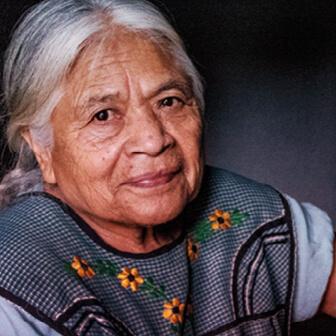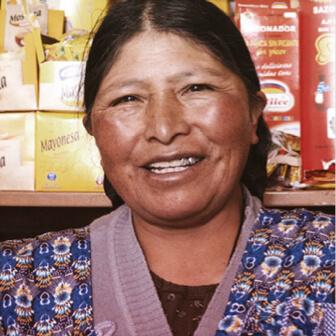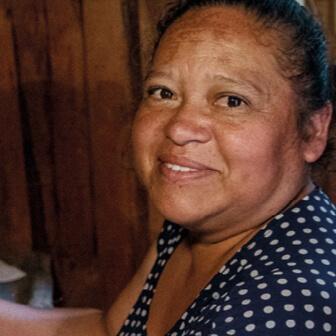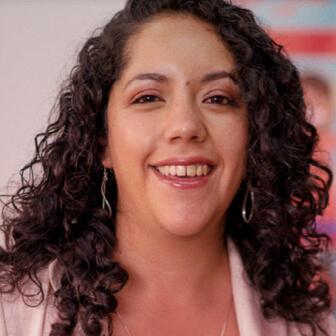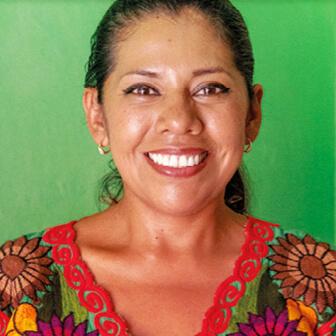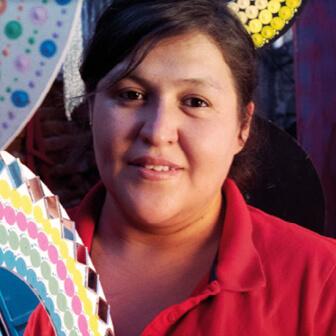Tales of a Pro Mujer Intern – Part I
11 septiembre, 2012
Blog, Voices from the Field
Malia Schroeder was an intern at Pro Mujer in Bolivia through the Foundation for Sustainable Development, where she helped launch a Non Monetary Incentives Program for the Human Resources department and a Promotional Campaign for the Marketing department. She graduated summa cum laude from Hawaii Pacific University and is now working as a Translation Project Manager for a global translation company that has operations in Honolulu and Hong Kong. This fall, she will commence her graduate studies at the London School of Economics for a Master’s in Local Economic Development and hopes to continue to contribute to the international development community.
I’ve been in Bolivia for a week now and as promised I am going to do a better job of keeping everyone up to date during this adventure than I have in the past. First off, Bolivia is stunning, and totally worth the two days of traveling it took to get here from my home base of Honolulu. I left last Thursday the 28th of May, and arrived in Cochabamba on the afternoon of Saturday the 30th. I met up with three other Foundation for Sustainable Development (FSD) interns on a layover in La Paz, and upon our arrival in Cochabamba, we were met by the FSD staff. Together we participated in a five-day orientation process to introduce us to Bolivian culture, the Spanish language, and our internships for the next two months.
The view from the plane. We literally flew between mountain peaks to get from La Paz to Cochabamba.
The Foundation for Sustainable Development is a non-profit organization dedicated to development at the local level. They have operations in Asia, Africa, and Latin America. By partnering with community organizations, interns are provided an inside look at the development sector. I am going to be working with an organization called Pro Mujer, which translates as Pro-Woman. Pro Mujer is a women’s development and microfinance organization that provides credit to women so that they can start or grow their businesses, most of which are small family run affairs – such as food stands or farming. The microfinance focus of Pro Mujer strengthens local communities by helping women attain stable incomes, as well as by making healthcare available to the women and their families.
There are a variety of projects that I can work on, and I think that I am going to be working on promoting rural microfinance in one of the satellite locations around the city. I am very excited to be able to learn about such an interesting topic first hand, and hope that my contributions help spread the word about Pro Mujer to women in the surrounding communities.
A rural area of Sacaba on the outskirts of Cochabamba
My host family is great. They live in a house with a big garden within walking distance of the FSD office. It’s a big family, so there is always someone around. The mom and dad, Lidia and Freddy, like to have all of their kids close, as is common in Bolivia. So even though all their kids are in their 30’s, they all live at home. There are two host brothers, two sisters, a sister-in-law, a nephew, the house keeper and her son, and two gigantic great danes. Everybody eats together at lunchtime – huge meals that render dinner completely unnecessary. All the women of the house knit at night in front of the television, and I am going to try to pick up knitting again and join them. Overall, a very nice family.
My Spanish is flowing a little easier, although I still have a ways to go before I understand everything. All those language classes at HPU paid off, and I generally get the gist of conversations, even if some of the words are lost. People here are very patient and friendly, and hardly anyone speaks English, so hopefully my Spanish will continue to improve.
This tea, made from coca leaves, is popular throughout the region, and helps with reactions to altitude.
Bolivia is beautiful, as is the city where I am staying, Cochabamba. The city is in a valley, surrounded by mountains, which makes the climate more temperate than the rest of Bolivia. Now it is sunny here 100% of the time, as it is winter in South America, and it doesn’t rain in winter here in the highlands. We are at such a high altitude (5000-6000 ft.) that the air is thin and the sun is strong. Sunscreen is a must! It is warm and sunny during the day and freezing cold at night. The showers are electric, so the water never heats up, and showering is an unpleasant experience. The houses aren’t heated, so when it’s below freezing outside, it’s about the same inside. I’m hoping that my blood will thicken and the cold will bother me less after a while. A result of living in Hawaii for the last three years is that I cannot deal with temperatures below sixty degrees Fahrenheit.
The food here is very rich, and consists mostly of carbs and meat. At least two or three carbohydrates are served with every meal: potatoes, rice, pasta, and bread are served with either beef or chicken, which is usually fried. After I send this email from an internet cafe I’m off to find a gym to join. Hahaha. Wish me luck doing cardio at this altitude.
There are hundreds of types of potatoes in Bolivia. It seems like they’re eaten with everything any time of day. Although that might be an exaggeration.
Stay tuned for Part II!
